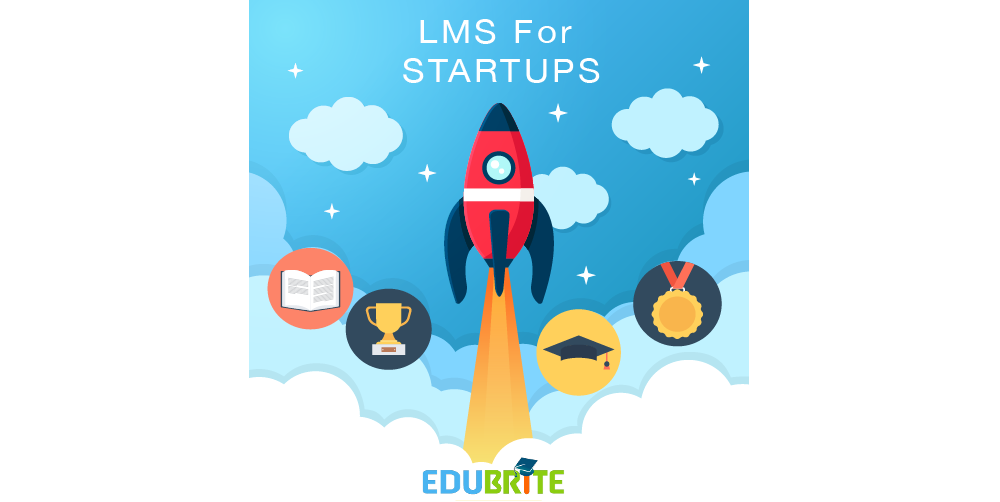Your Tech Startup doesn’t have any LMS “yet”?
There may be a number of reasons, why your “Tech” startup doesn’t have an LMS yet.

- You are a startup founder, and perhaps not know anything beyond what you are building yourself… especially LMS (like I was once). Or you might be confused seeing 500+ products out there on Capterra in LMS category. Which one of those is called a LMS, seems like a huge collection of completely different kinds of products in one place.
- Your little occasional spiked effort getting into it got blocked by unawareness about strange terms like SCORM and xAPI. “Do you really need ‘em”? What does US Dept. of Defense have anything to do with eLearning or LMS standards? Did you feel like “Am I in the wrong place”
- You “still” use PowerPoint, Word or (may be Keynote) to create tutorials, because they are so easy to use, and work offline (besides Eclipse or Xcode) and you never have to buy them, and you learned them 20 years ago (or so) and they still work pretty much the same way… (in good sense). Why would anyone have to use Cartoon characters and animations to create eLearning for software tutorials
- For all your 1×1 troubleshooting sessions with customers, you simply send them a calendar invite and hop on to Hangout, Skype, GotoMeeting, WebEx or Zoom .. (not in any particular order of coolness). Isn’t LMS going to do the same? Is any functionality missing in these tools to conduct training… perhaps not (you thought)?
- Despite all the above reasons, even if you managed to understand what LMS is, and may be someone convinced you to use Pok-e-mon character in tutorials, but wait… don’t we make technology products? How is LMS going to help us, don’t our customers need hands on trainings… is that what you are thinking?
Most startup founders find one or many reasons (some of them are mentioned above) to believe they are good to manage their training needs with a Calendar, Email, Google Docs (or some variant), Wiki (open source perhaps), Forum, WebMeeting, YouTube/Vimeo, WordPress and few self-managed AWS nodes to create a “Simple” training solution for their startups.
But this makeshift solution has limits and you start to realize a year after or sooner, that to train your growing customer base and for your product adoption and reducing the support cost, you need a formal training strategy in place. So you hire someone to lead the training initiative (or someone from Customer Success or Professional Services team volunteers) and that also starts conversation around bringing in an LMS, because a hand-crafted solution with over half a dozen products won’t really scale well as your startup gets the traction.
There is a reason why LMS exists, but LMS industry has to blame itself for getting this indifferent treatment from most tech startups. LMSs are positioned like one part of ecosystem consisting of several interdependent products.
Most LMSs are created with Enterprises in mind, so Startups don’t implement one, for as long as they can live without it. Another complication is the fact how LMS and related eLearning industry ecosystems is built. LMSs are one part of ecosystem consisting of several interdependent products like eLearning authoring tools, Gamification tools, Certification tools and now more recent entrants are LRS and Digital Badging tools. To make the matter worse, there are large (and growing) number of competing standards created for various component of the ecosystem by equally large number of competing bodies like ADL, IMS Global etc. You can’t really have a fully usable learning solution without integrating all these components, unless you are willing to look beyond well-established definitions and wisdom of the learning industry specs and analyst reports. Are there so many specs for other tech verticals like CRM or CS?
Even very small tech startups can regularly produce large amount of “agile” content like recording of 1×1 trainings, PowerPoint/keynote based tutorials and ever-changing wiki pages, but professionally created bulky SCORM content doesn’t scale very well.
The repository of these content items can quickly grow and having a metadata based taxonomy is a must to make these contents easily findable. Organizing these content items in a course may be possible but is not necessary from the get go. Let users build their own playlists with the items they want to learn in any order they like similar to playlists on YouTube. A very important need from tech startup is integration and tracking hands on learning, besides eLearning. As long as user’s activities results in completion tracking and award of points, the notion of course is not really necessary.
For a LMS to be considered suitable for tech startups, they must support Lesson oriented micro learning delivery and consumption. We call it Open Learning… open means not closed inside a course.
EduBrite’s Open Learning solution is specifically geared towards tech startups, that allows creating a “unique” learning experience. It offers a “lesson oriented” micro learning experience in addition to traditional courses and certifications and is already in use by several tech companies. I hope that this post will help your startup in understanding the learning ecosystem better and selecting the best LMS that helps you grow.
